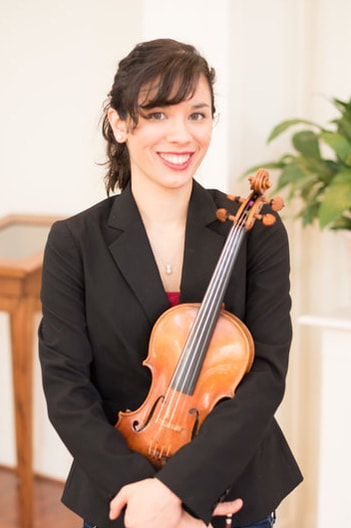In my studio, right now, my students are divided into four teams, and those teams are participating in a variety of activities to earn points. I am keeping score for them and the winners will be announced right before our winter recitals - which, conveniently, they will be even more prepared for. They get points for practicing. They get points for completing a certain number of scale bowings, or reaching milestones in their etude books. They get points for attending concerts, and for reading books on music.
Hannah has proven to be a fierce competitor. Her mom ordered several of Mike Venezia's Getting to Know the World's Greatest Composers series and she has gone through one of them every single week, bringing in hand-written notes.
Today, she brought me some wonderfully written notes on George Frideric Handel. At the top of the page, she had written: "Question from Hannah: Why are all the composers I learn about men?"
It stopped me in my tracks. I consider myself a thoroughly modern woman. I vote. I own property. I have my own bank account. I have my own business. I drive. I even drive if my boyfriend is in the car.
And yet, my repertoire as a performing violinist and as a teacher, is almost completely written by deceased white males. In keeping with my classical training and tradition, I'm passing this repertoire down to my students.
Don't get me wrong. I LOVE the music by the famous classical composers. I'm currently learning works by Wienawski, Brahms, and Beethoven. I earned both my college degrees playing their music. I love it. It's so much a part of me that it took my seven year old student to get me to really look at my repertoire.
When I explained to Hannah that a long time ago, women's rights were limited, she looked at me blankly. She was born in the 21st century. Such a world seems foreign to her, and I am glad of it.
In her lesson, I gave her a list of female composers and told her that if she researched them and took enough notes, I would count that as reading a book for our studio challenge. It seemed only fair, and I wasn't sure that I would be able to find children's biographies of female composers.
I came home from teaching and immediately went to Amazon, where I found a few children's books on Hildegard von Bingen, Nannerl Mozart, Clara Schumann, and Fanny Mendelssohn. I instantly sent them to Hannah's mother, and I will look forward to hearing her thoughts on them in the near future!
Then, I wondered if I could find music by female composers at a comparable level to Suzuki Book 1. I googled "violin music by women" and found a treasure: http://www.violinmusicbywomen.com. It's a graded anthology - with four volumes, from beginner to advanced level, all written by women. Some are historic and some are written by living composers.
I ordered all four volumes and am going to work on incorporating them into my teaching. Besides Hannah, who is one of my most outspoken students, I have several other modern young women in my studio who will want to play music written by women closer to them in history. For that matter, there are modern young men in my studio as well, who will learn that women compose music that it is worth their while to play. There will always be a place for the classics, and those wonderful men whose music has endured through the centuries. But from now on, in my studio, music by women will be studied and performed, too.
(And no, Hannah, the fact that you inspired this blog and new repertoire for the studio does not earn your team more points!) ;-)

 RSS Feed
RSS Feed